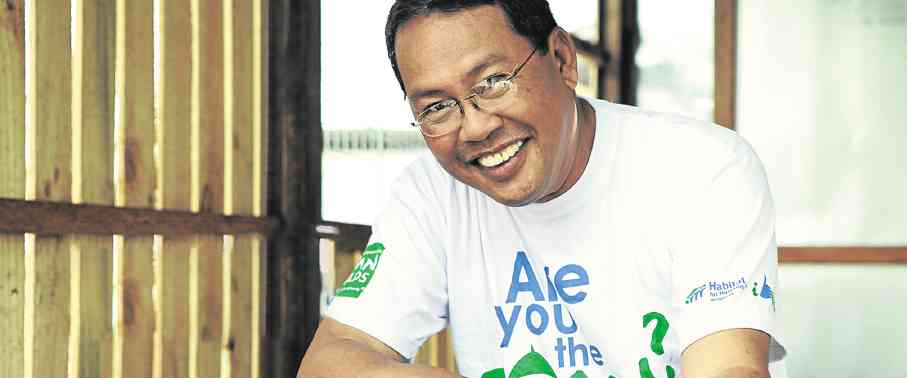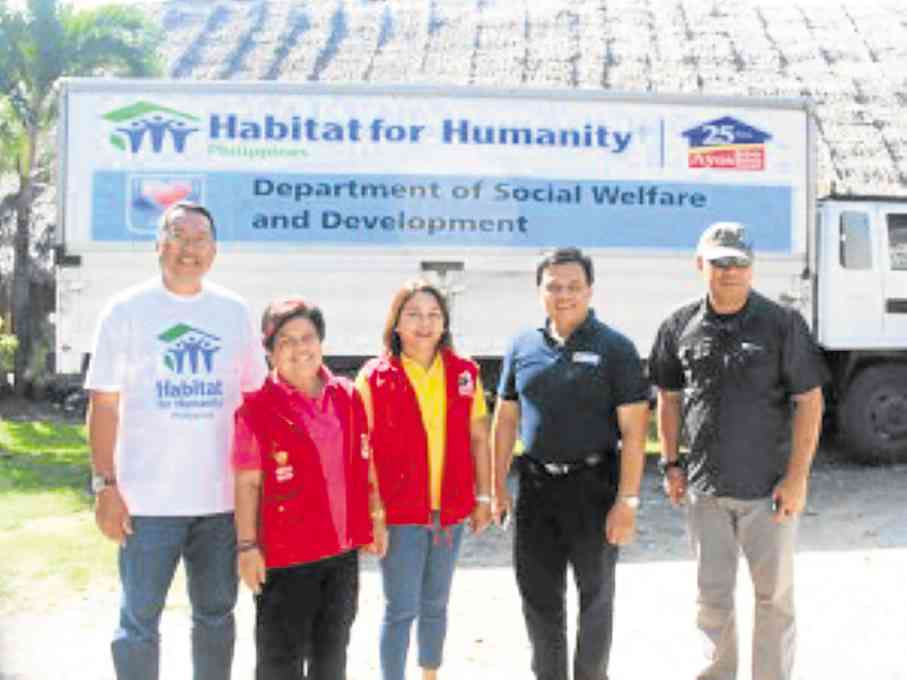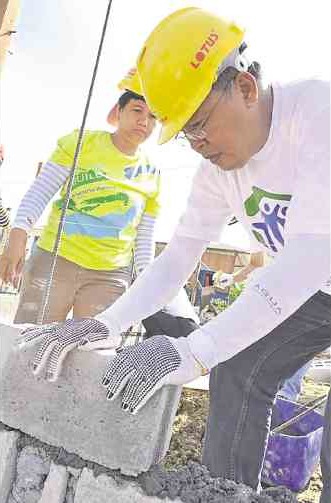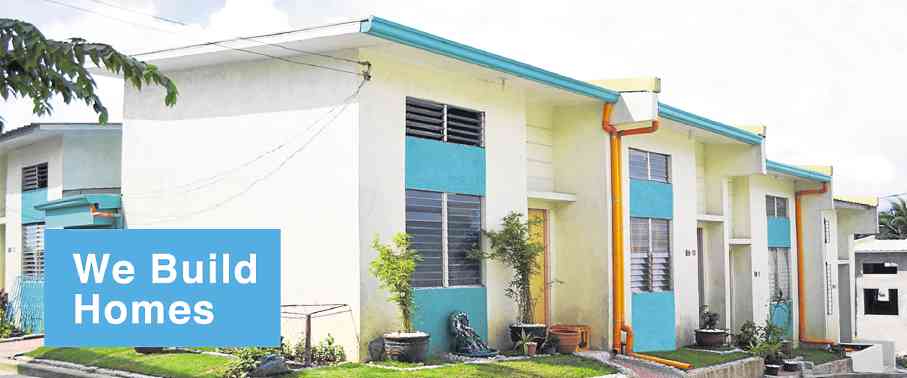Former seminarian continues to serve God, homeless
The number of homeless families may be on the rise, but it’s good to know that there remained people who are still willing to devote much of their time, energy, and even resources to help improve such a dire situation.
One such organization that continues to show such selfless acts is Habitat for Humanity Philippines. Since it was established in 1988, the organization has served more than 140,000 families and mobilized volunteers who have contributed more than 500,000 hours of their time through building and repairing homes and communities.
And behind the huge success of Habitat for Humanity Philippines would be its leaders who have remained committed to build communities and transform the lives of many Filipinos.
Currently, the Philippine arm of Habitat for Humanity is headed by Charlito S. Ayco, who serves as its managing director and CEO.
Get to know more about the man who is now steering the group to ensure that Habitat for Humanity will continue to not only touch the lives of the marginalized, but also inspire and encourage others to help in this meaningful advocacy.
Q: Who was Charlie Ayco before Habitat for Humanity Philippines?
AYCO: I spent my early years in the seminary—a total of 11 years. So my orientation was more on service which I first understood as expressed through priesthood.
When I finally realized that priesthood was not really for me, I searched for options. But it was clear to me that my vocation in life has something to do with serving God and His people—this time as a layman.
I started teaching college Theology at the Ateneo de Manila University during the early ’80s. While I enjoyed teaching and at the same time pursuing postgraduate studies in Social Psychology, I felt that I would have been more effective if only I had field experience in facing the nation’s challenges, which ordinary people face day to day such as issues on social justice.
The opportunity came when I was appointed as the officer-in-charge mayor in Sevilla, a small town in Bohol, which is my birthplace. I was only in my late 20s and I was looking for ways to help people especially from my town. (I became) an elected mayor after I won in the 1988 elections.
My stint as a mayor opened my eyes to the reality of life and politics. I tried to initiate development programs. But it was not easy since we did not have the financial resources and we had a serious peace and order problem. (Later on) I lost in the 1992 local elections.
While it was personally painful, it also gave me a good lesson. Public service can be done in a private way through non government organizations (NGOs). So instead of returning to the academe, I joined a local NGO and became active, particularly at the provincial level.
I also honed my skills by taking a course in Development Management at the Asian Institute of Management where I graduated with distinction. Shortly after graduation, I joined a private firm based in Manila where I participated in its business development activities.
On the side, I was invited to be a volunteer of Habitat for Humanity by starting a local housing project for informal settlers in Tagbilaran. This was my first involvement with Habitat and I found it to be meaningful because Habitat is a Christian organization.
It does not go around preaching to people, but “demonstrates God’s love” by helping people realize a dream of living in a decent house. Our founder, Millard Fuller, calls it the Theology of the Hammer.
I immediately accepted Habitat’s offer to join its national staff. It is not very often that you are given an opportunity to earn a decent living by helping others. I have been with Habitat for 17 years.
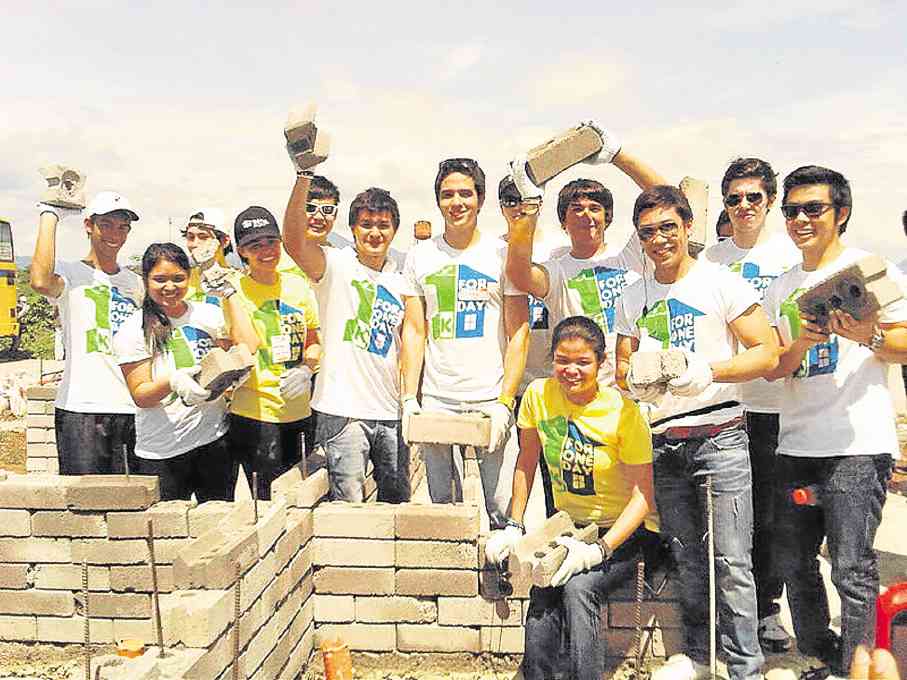
Filipino youth mobilize and tackle poverty housing through regional Habitat for Humanity Young Leaders Build
Q: What was your first project and how many families/houses were involved?
AYCO: My first project was in Tagbilaran City where Habitat had a partnership with the city government to relocate around 300 families living in the foreshore area to a relocation site around 5 kilometers from the city center. It was a greenfield project and we faced so many challenges in terms of access and logistics.
I was working as a volunteer president of the board of trustees of the local Habitat affiliate. I was joined by prominent business and civic leaders of the city. In fact, our site was visited by (former United States) President Jimmy Carter in 1999, being one of the sites of the Jimmy Carter Work Project.
Q: Why among all possible projects for the marginalized did you take on housing?
AYCO: Had I not volunteered with Habitat, I would not have focused on housing. In fact, my first NGO involvement was focused on livelihood development. I still believe that livelihood, education, health are all very important to break the cycle of poverty.
But what is unique with housing is that it provides a platform where other development interventions could become more effective and successful.
You can support a child with a good classroom and even a scholarship. But we can demonstrate that this child will perform better if he lives and sleeps in a decent house where there is adequate light and water and they have no fear of being washed out by the next flood or be ejected by a demolition team.
A decent house provides a nurturing environment where a human being can develop. In fact, aside from food, the environment is a major factor in malnutrition, whose ill effects could be irreversible if not addressed during the early development of a child.
Q: How do you choose the areas or communities you will help? How difficult is the job?
AYCO: We usually work with the local government office for the urban poor to identify priority areas.
This is the usual process for our regular housing program. We also respond to invitations for partnerships by local government units because at least we know that there is interest by the local political leadership.
In contrast, disaster response projects focused on housing is really driven by the magnitude and urgency of the disaster.
Habitat is largely funded by private donations—from coins dropped in tin cans, salary deductions by ordinary employees, as well as corporate donations. The number of houses we can build would really depend on the donations we get.
Lately, we were also getting some donations from companies engaged in housing who partner with Habitat to comply with current laws. These are good initiatives by the government (as it) has expanded the potential source of funds to house the poor.
I enjoy my work but it is also difficult. Unlike in business where the customer pays for the service or product, in the development arena, the one who pays (market) is different from the one who benefits (beneficiary).
The donor is the market while the poor family who gets a decent house is the beneficiary. Matching these two interests to get a donation is not easy. In fact, I would like to appeal to all those reading this article to donate generously to Habitat so that we can perform our mission of providing a decent home to all Filipino families.
When you hear about us, it means that we are working for many Filipino families and we need more help.
I also need your prayers that resources, be it financial, human and material, be made available to Habitat so that we can help more families.
This is an urgent need because millions of Filipino children are living in subhuman conditions. I have to confess that I pray to God for His help because the burden is too heavy. Please join us in this prayer.
Q: Is Habitat your first project with the marginalized or have you always been involved in such activities?
AYCO: When I was mayor of our town, we focused on projects which would help the poor.
In fact, it was during my incumbency when we built the Hanging Bridge located in Sitio Sipatan in Ewon, Sevilla. It has become a tourist attraction although the original plan was simply to provide access to the people even when the upper Loboc River is flooded.
Q: What were the challenges you encountered along the way? How did you handle it?
AYCO: The challenges were varied.
It could be security—like that time when we were building houses in the ARMM (Autonomous Region of Muslim Mindanao) in the middle of the armed conflict.
It could be political, such as when there is a change in the local leadership after elections, or a simple human resource problem involving staff performance. But in all of these, we always go back to our mission. What is the organization supposed to do?
We ask: what should we do so that, at the end, God’s name is glorified? Habitat is not about itself or about us the staff or the board. It is to glorify God and to show to people who have suffered for generations that He cares for them. Habitat is just one of His instruments to demonstrate and make them feel His love.
Q: What was the most memorable part of this journey of yours?
AYCO: Looking at the faces of poor families cry in happiness as they move into their new homes is always memorable. Perhaps I will not meet them again but I am happy with the thought that their lives could be better.
Q: Plans in the pipeline? Is there anything more that you want to achieve?
AYCO: We launched our Vision 2020 wherein we hope that the total housing backlog of the Philippines will be reduced by 20 percent (by that time). This means we have to assist around 800,000 families (and enable them) to live in a decent home.
But my dream is a decent house for every Filipino. Is it too much to dream that one day in the future, each and every Filipino child will live and sleep in a decent house?
